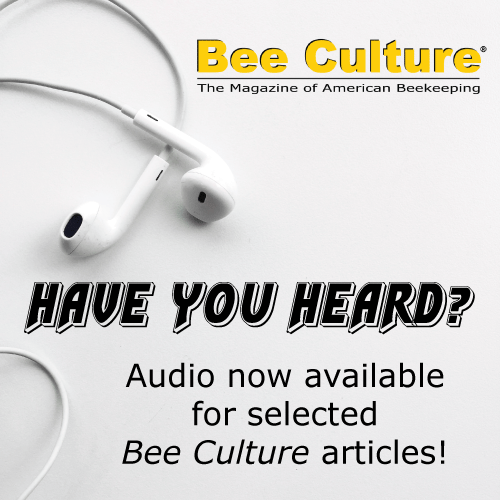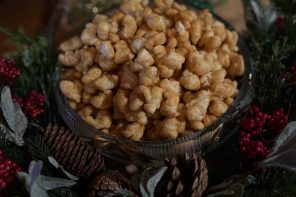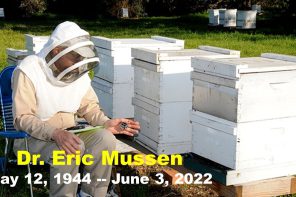By: Nathalie Steinhauer & Mikayla Wilson & Jeri L. Parrent & Dan Aurell & Selina Bruckner & Geoff Williams
Hi beekeepers! The Bee Informed Partnership’s Annual Colony Loss and Management Survey team is looking forward to another season with you.
The Loss and Management Survey is a national effort that tracks long-term trends of U.S. honey bee colony health. The survey’s main objective is to monitor colony loss rates that beekeepers experience each year, the management actions that beekeepers take, and to compare these losses and practices among all types of beekeeping operations − from backyard hobbyists managing fewer than 50 colonies to large, multistate commercial operations with more than 500 colonies. This not only allows us to identify what groups or management practices are associated with higher colony loss rates, but also enables us to track how beekeepers adapt over time to respond to the changing circumstances of beekeeping. You can think of the survey as a barometer for U.S. honey bee health. In previous years, about one in 10 U.S. beekeepers – and 14% of the nation’s estimated 2.6 million colonies – were represented in the survey. We hope that this year we will have even greater participation from the beekeeping community!

Do you live in an area bringing good pollen flow? Nutrition and Environment is the theme of the year for the 2022 BIP Survey!
The survey data has yielded important insights into U.S. colony health trends. First, it has dispelled the notion that honey bee colonies only die in Winter. Though colony losses are higher in Winter, Summer losses are not trivial. In some rare cases, they can exceed Winter losses. Survey results have also confirmed that professional beekeepers experience lower mortality rates than small scale beekeepers, despite often being criticized for putting their colonies under stress by frequent moves and intense management. Finally, it has become clear that U.S. colony loss rates have not steadily increased since the beginning of the survey in 2007. Losses have followed a cyclical pattern, where one year of higher losses is followed by a year of (somewhat) lower losses. However, these loss rates remain consistently higher than what beekeepers identify as an acceptable level of loss. To read more about these cycles, visit https://beeinformed.org/citizen-science/loss-and-management-survey/, where you can find a list of the peer-reviewed publications resulting from the Loss and Management Survey.
With this year’s Survey, we are building on our past work in monitoring colony losses and exploring the relationship between them and management. While the Loss Survey has been running since 2007 (and a Management section was added in 2010), we continually want to make it better! Therefore, we made some changes to the Management section of the Survey last year to improve the experience for our respondents. Now, each year’s Survey will focus on a specific theme which will reoccur based on a regular rotation schedule. Last year, the Survey focused on “Queens and New Colonies” (particularly nucs and splits). This year, the focus will be “Nutrition and Environment.” By focusing on one topic each year, the survey is shorter and more focused!
How to prepare for the survey
To make it easier to answer this year’s survey, we will walk you through the different sections, step by step.
1 – Colony Loss Questions
You might want to have a couple of numbers in mind before you begin. The survey questions will ask you to report how many bee colonies you managed at specific times of the year – specifically, April 1st 2021, October 1st 2021, and April 1st 2022. If you’re a commercial beekeeper, those key times of the year are not set in stone, but rather determined by your “beekeeping year”. For example, your first colony count will be right before you made your first splits in the Spring. We will also ask you what date this was on. Perhaps it was February 25th, or maybe it was March 15th? To understand the number of colonies lost, we will ask you about other activities that make your colony numbers fluctuate: Making splits, combining colonies, buying/receiving or selling/giving away colonies, and the number of colonies involved in each of those activities. For beekeepers who move colonies across state lines at any time during the year, we also ask you to tell us when and for what purpose you moved colonies between states (e.g. pollination, honey production, wintering).
2 – Core Management Questions
There is a set of important core management questions that we will ask every year. Examples include: How did you obtain new colonies and queens? When did you monitor your colonies for pests and disease? When did you treat for Varroa and other diseases? What feed did you apply and when? We keep it high level to get an overall picture of what beekeepers do.


3 – Year-specific (rotating) Management Questions
This year, we are focusing on questions related to nutrition and the environment your bees experience. For example, we will ask you to tell us about the seasonality of nectar and pollen flows, details about how you provided feed to your colonies, what your honey harvest was, if you actively participated in the pollination of agricultural crops and whether your colonies experienced issues associated with pesticide exposure.
4 – Demographic Questions
We conclude the survey with an array of demographic questions sociologists like to ask, and the resources you are using to enhance your knowledge about beekeeping.
Don’t fret! Before the survey launch on April 1st, we will have the full preview of the survey on our website. We made enormous efforts to update the look of our online survey to make it easier and faster to answer the questionnaire. We hope you’ll like it, and take this survey as a chance to look back on your last beekeeping year and all the efforts you put into your bees!
We take your data seriously
Your participation in this research is confidential. All your answers will be stored in a secure, password protected database application that uses SSL encryption. No personally identifiable information will be disclosed in any publication or presentation resulting from this research. Completion of all or part of this survey is voluntary. If you are not comfortable answering a question, please leave it blank – we still use and benefit from the information that you do provide, even if you don’t answer every question.

Who are we?
The current survey team is composed of Dr. Geoff Williams (Auburn), Dr. Nathalie Steinhauer (UMD), Dr. Selina Bruckner (Auburn), Mikayla Wilson (UMD), and Dan Aurell (Auburn).
How to take the survey
The survey will be live on April 1st, and will stay open until April 30th.
Sign up to beeinformed.org (https://beeinformed.org/citizen-science/loss-and-management-survey/) to be added to our mailing list, and you will receive email survey reminders and updates.
We cannot overstate how important your responses are for documenting the state of the country’s managed honey bee colonies.
We hope you will incorporate taking the U.S. Annual Loss and Management Survey as a part of your Spring traditions!








